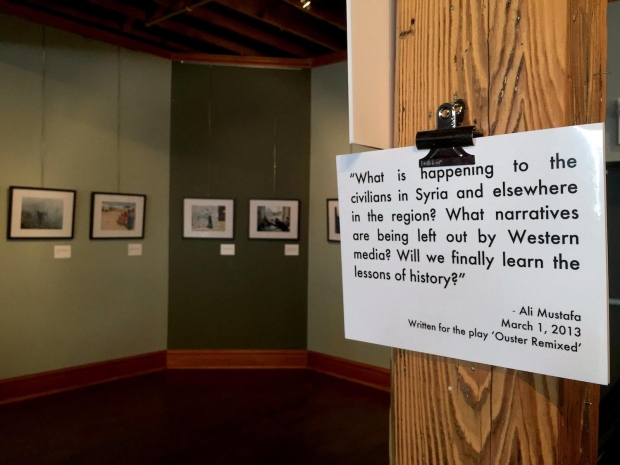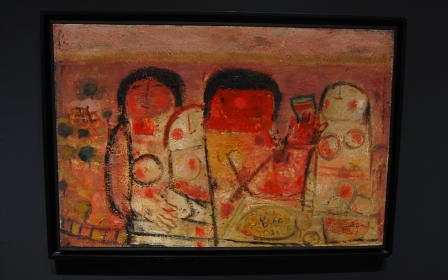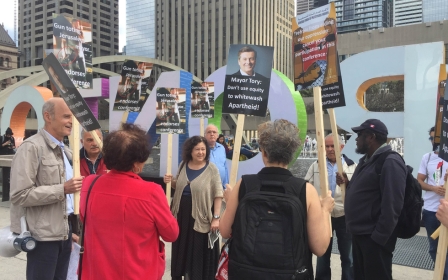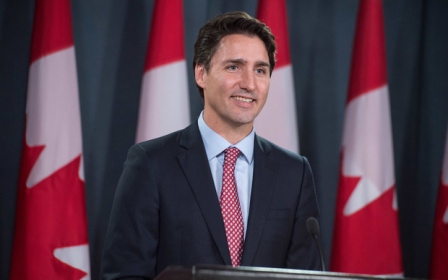Palestinian activist cultural centre in Toronto leaving 'on high note'
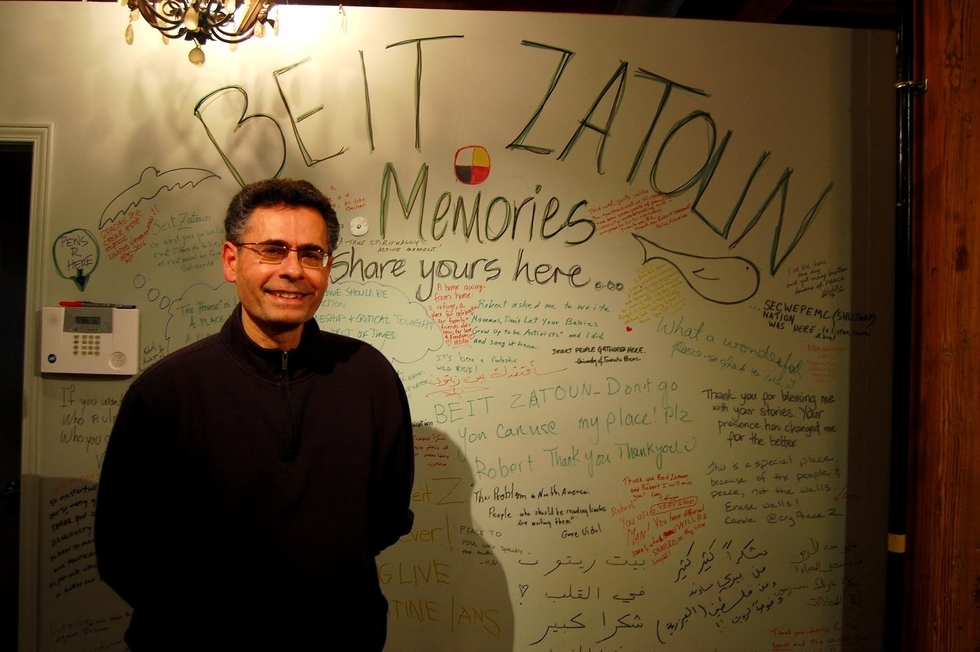
TORONTO, Canada – “Palestine is at the root, but the tree is global justice.”
That’s how Robert Massoud describes Beit Zatoun, a gallery and activist space that he founded nearly seven years ago to bring social justice struggles and human rights issues from around the world to Toronto.
The name – “House of Olive” in Arabic – is a nod to Massoud’s own Palestinian heritage, and the olive served as the perfect symbol to bring the issue of Palestine to North America, Massoud explained.
“The olive tree is ubiquitous in Palestine; it’s everywhere,” Massoud told Middle East Eye earlier this month.
“The olive tree is a symbol also of [Palestinians’] resistance to occupation because the olive tree is resistant to drought, resistant to fire, resistant to wind; it has very deep roots in the soil, and for Palestinians that also is a symbol of their relationship to the land.”
But Beit Zatoun is about more than just Palestine. “You name it, we’ve dealt with it,” Massoud said.
Beit Zatoun has hosted more than 1,000 events since it opened in 2010, from film screenings and photo exhibitions to art installations, speakers, press conferences and interactive plays.
Yet despite its success, and running a packed schedule of events this past fall, Beit Zatoun is preparing to close its doors at the end of November.
The city of Toronto plans to tear down the building as part of a large-scale refurbishment project in the neighbourhood, which is known as Mirvish Village. Condos and other new buildings will be constructed in its place.
“Now that we’re forced to close because the building is being torn down… there’s a huge gap or hole that people recognise. What’s going to fill that hole?” Massoud said.
He said he decided not to move Beit Zatoun to another location because of the space’s current size, relatively affordable rent and location near a subway stop were tied to its success.
'As a cultural centre, it wasn’t just the Palestinian culture, it was for all people. The inclusiveness drew them in, and out of the inclusiveness comes diversity'
“Beit Zatoun will not continue as a physical space anywhere, but what it has done it has blazed a trail so that perhaps other groups, other people, can follow in those footsteps down the road,” Massoud said. “We’re leaving on a high note.”
Building links beyond Palestine
Patrons of Beit Zatoun often cite its rich programme of Palestine-related events as one of its main draws.
Pamela Dodds, a Toronto-based visual artist who began attending events at Beit Zatoun a year-and-a-half ago, said that though the physical space was warm, it was Massoud’s personality that made Beit Zatoun so welcoming.
“He brought to every event a very sort of open, questioning, inclusive [feeling], and really insisted that people listen to each other,” she said, adding that Massoud would personally step in if post-event discussions ever devolved into screaming matches.
“He would always interrupt and say, ‘We’re here to listen to each other and debate these ideas, not to yell at each other.’ He would immediately get everyone back on track and the result is that we would have really in-depth conversations… People felt safe to express their views in a way that would be heard and respected,” Dodds told Middle East Eye.
But Massoud stressed that events have intentionally focused on issues beyond Palestine, including struggles for social justice in South America, the Caribbean, Asia and across Africa.
“My original vision for Beit Zatoun was not an ethnic ghetto,” Massoud said. “As a cultural centre, it wasn’t just the Palestinian culture, it was for all people. The inclusiveness drew them in, and out of the inclusiveness comes diversity.”
He said building a wide coalition of support across these many groups is critical.
“Beit Zatoun has been a real bonus… for the Palestinian solidarity and advocacy groups. But I think it’s also very important that they were bolstered with other groups,” he said. “Had we been just a Palestine centre so to speak, that would not have been very satisfying to me, only because I think Palestine needs friends.”
‘Beit Zatoun isn’t going anywhere’
Indeed, the space also grew into a home for the city’s tight-knit activist community.
Toronto-based photographer Ali Mustafa hosted his first photography exhibit at Beit Zatoun, showcasing images shot during the Egyptian revolution. He later discussed his work in Brazil and Syria, before he was killed in a bombing in Aleppo in 2014 while photographing Syrian emergency first responders.
After his death, Beit Zatoun donated its space annually for a memorial exhibit of Mustafa’s work, explained Johannah May Black, a member of the Ali Mustafa Memorial Collective, which was formed to honour his memory.
“This space has meant so much to our collective in terms of being able to continue to show Ali's important work to the community. There are few places in the city that would donate space for an exhibition without charging,” she told MEE.
She said Beit Zatoun took an active part in continuing Mustafa’s legacy of standing against global injustice.
“In this sense, Beit Zatoun was not only a community centre, but it was also a place to build movements, to confront injustice, and to come together to remember those who have dedicated their lives to these goals," she said.
Meanwhile, Lia Tarachansky, an Israeli-Russian journalist and documentary filmmaker, recently described being in the audience for one of Beit Zatoun’s last events, a talk by Massoud reflecting on the imminent closure of the space.
“As I was standing there, I was thinking to myself that with Beit Zatoun shutting down in two weeks, Toronto will lose the space NOW Magazine’s readers voted the ‘Best Place to Get New Ideas,’” Tarachansky wrote in a Facebook post in mid-November.
“The more I listened to Robert, though, the more I realised, [Beit Zatoun] isn't going anywhere. It is being transformed, reconfigured, defragmented, and reconstructed. I can't wait to see it in its new incarnation.”
New MEE newsletter: Jerusalem Dispatch
Sign up to get the latest insights and analysis on Israel-Palestine, alongside Turkey Unpacked and other MEE newsletters
Middle East Eye delivers independent and unrivalled coverage and analysis of the Middle East, North Africa and beyond. To learn more about republishing this content and the associated fees, please fill out this form. More about MEE can be found here.


